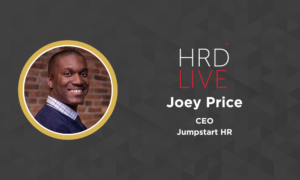2020: HRD Thought Leaders on the biggest trends of the year to come
- 7 Min Read
Dave Ulrich, Jill Christensen, Jon Ingham, Katrina Collier and more HRD Thought Leaders predict the trials and transformations that will face the workplace in 2020.
- Author: Michael Hocking
- Date published: Jan 7, 2020
- Categories

It’s a new year and a new decade. 2020 promises to be a year of even faster and innovation in business than ever before, but what exactly is going to happen?
Who better to predict the trials and transformations of 2020 than the HRD Thought Leaders. HR world leaders, Dave Ulrich, Jill Christensen, Jon Ingham, Katrina Collier, Janine Truitt and David Roberts, look into their crystal balls to predict the most important HR and business trends of the year to come.
Dave Ulrich, Professor, Author, Management Consultant
HR investments continue to deliver individual competencies (talent), leadership, and organization capabilities (culture) to help companies win in the customer and investor marketplaces. Increasingly, we are seeing that HR analytics and digital are less about descriptive work (what is) and more about prescriptive work (what can and should be).
We are calling this emerging focus on HR being more prescriptive about how to add value by offering, “guidance.” Guidance means that HR not only facilitates a leadership 360, an organization audit, a cultural transformation, or a talent innovation process, but is able to offer specific guidance about which leadership competencies, organization capabilities, or talent practices will most impact customers or investors. For example, it is not enough to have a “culture” of values as it is to have the “right” culture that delights customers and gives investors’ confidence. This outside in, guidance logic will move HR ever more into a value contributor role.
Jill Christensen, Employee Engagement Expert and Best-Selling Author
At a recent HR conference, I heard Johnny Taylor, SHRM president and CEO, say that HR professionals will have a maniacal focus on culture in 2020. I smiled as I heard this because he took the words right out of my mouth. Culture change and employee engagement are not going away. In fact, the focus will only get stronger as more and more people admit that an organization’s culture makes or breaks it’s business results. I envision HR professionals speaking up courageously in 2020 and starting the culture conversation with senior leaders, as leaders are instrumental to an organization’s successful employee engagement journey. HR will not be successful if they continue to own this issue alone. Savvy HR professionals are finally realizing this and – more importantly – doing something about it!
Jon Ingham, Author and Consultant
There is so much change going on in HR as well as business and life in general now, but I would suggest the most important is the shift to groups and networks. The amount of knowledge available in most disciplines has grown hugely, meaning we need specialists, or ideally T-shaped people with one or more specialist capabilities and a broad understanding of business and technology, as well as great soft skills. But the problems we are facing are increasingly broad and complex, requiring multi-disciplinary working, and meaning that we need to pull specialists together in teams, communities and networks.
HR is therefore having to shift its focus from individuals to groups; or human to social capital. This is not the only change going on but I would suggest it is behind and also results from most of the of the other changes. For example, the most important aspect of digital transformation is often organisational change – creating agile teams in IT, scaling this up through distributed networks and connecting people in communities to provide engagement, relatedness and belonging. And once this change take place, everything else, including leadership, HR processes and learning – changes too. Hold onto your hats in 2020!
Katrina Collier, Author, Speaker & Facilitator
Candidates who are confident that their skills are in-demand and that it is a candidate-driven market shall continue to ghost recruiters and talent acquisition. In fact, I expect to see an increase in candidate ghosting as people research companies and recruiters in depth online before deciding to reply to an email or make a job application. Companies who continue to ignore review sites and their own social media footprints, and continue to place process and technology in the way of the human experience, will suffer the most.
Those companies who invest in developing the irreplaceable human skills of their recruiters, clear the roadblocks in their hiring, and place candidate-centric technology firmly at the heart of what they do, will put themselves in the best position to reduce candidate ghosting in 2020 and beyond.
Janine Truitt, Chief Innovation Officer, Talent Think Innovations
In 2020, I see a reset on the horizon for Human Resources as a discipline. We have been struggling with our identity for the better half of two decades and more so in the last ten years. 2020 is a good time to rethink how we operate as a collective and start to co-create and set some new foundations so we can not only adapt to the inevitable change of business, but also the evolution of the human. Some areas that will likely come up for review are:
- Leading consciously. How can we encourage and develop leaders who are committed to supporting the evolution of their employees both at the team and individual levels so people are invigorated by work instead of depleted?
- Mental Health at Work and Neurodiversity. How can we support the often unseen arena of mental and emotional health? How do we as HR practitioners ensure that the workplace is a safe place for employees no matter where they are on along the spectrum of ability, intelligence, personality, behavior, and sociability?
- A return to the basics of workforce planning. Let’s get back to being proactive about how we plan our workforces by hiring the proper quantities of employees to do the work at hand. No more saving dollars on salaries only to saddle one person with the equivalent of a job done by two people. This will also allow us to find efficiencies that allow us to work smarter rather than harder.
David Roberts, People Officer & Director, Transformation Consultant and Coach
We exit 2019 with some clear indications how we’ll enter 2020 as well as the immediate future. I believe the year for companies and their people will see the increased importance of two areas; the i) generational effect and ii) technological advancements.
Generational effect
We’ve seen some huge society trends particularly in newer generations in 2019. These include; populism through politics, challenging the establishment and unacceptable behaviours through things like #MeToo or increased awareness of physical and mental health. But how do we see this playing a part in our companies?
This will extend to the needs of employees – they will increasingly want a company they believe in not only in terms of success but in terms of social brand and purpose. They will want a place of work that they view as a place of true well-being that offers what they have access to outside work. The employee proposition & culture must be invested in to compete with a competitive talent market or be left behind with traditional propositions.
Technological advancements
It’s quite obvious that tech is moving at pace and companies that don’t embrace the advancements will be left behind. People play a huge part as they want to be working on the best tech and be seen to be part of the advancements.
However, this year there will be even more capability available to us. Don’t worry, I won’t go on a monologue about AI, ML or AR but I do think these will become more accessible and practical in everyday companies lives.
This can be through a number of areas. High volume and low complexity tasks can be automated, and reporting will move to more predicative measures and insights. Learning and content will be digested in an immediate way to meet with the increasing need to do so. Use of AI bots and other relatively unproven approaches will take effect and personally I think this can only be a good thing. We just need to be ready for it, be willing to explore them and leverage them to their best effects. I think it’s always fun to be the early adopters.









